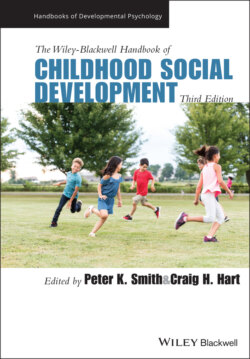Читать книгу The Wiley-Blackwell Handbook of Childhood Social Development - Группа авторов - Страница 82
Rousseau’s Émile
ОглавлениеWhat message did Rousseau wish to convey? He claimed that pedagogy should be child‐oriented; that there are age‐related stages, to which the approach towards the child, including the pedagogical and educational approach, must be tailored; and that children must only be offered knowledge when they display a need for it. Moreover, knowledge must spring from a child’s own explorations, from hands‐on experience, preferably not from books. A child should certainly not be exposed to wisdom from books before the age of 12! Despite much enthusiasm, from Kant among others, Rousseau’s book should in the first place be regarded as a revolutionary Enlightenment text, not as a pedagogical handbook. His book stemmed from the tradition which Israel (2001, 2005) named “radical Enlightenment.”
According to Israel, the key figure of this radical Enlightenment is Baruch Spinoza (1632–1677), the great Dutch philosopher. The “Epilogue” of Israel’s book is entitled: “Rousseau, radicalism, revolution.” Spinoza by way of Denis Diderot (1713–1784) led to Rousseau and the French revolution. The Émile was indeed radical. In the Émile the author pointed out that he did not only rebel against French society, but also and foremost against its reproduction (Soëtard, 1989, p. 97). Rousseau thought that children should be taken “back to nature” (however, this expression did not appear in his writings, but in those of his commentators). With “back to nature” Rousseau meant: as far away as possible from Parisian decadence. Children should learn to think autonomously, without being led astray by French culture, without following other people’s wisdom from books. This Enlightenment idea is the radical expression of the primacy of the autonomously thinking individual, which had great appeal to Kant. And this is the reason that Rousseau’s Émile is a book for philosophers, not for educationalists, fathers and mothers, as Rousseau emphasized (Bloom, 1979, p. 28). However, to no avail!
The first 4 books (parts) of the Émile describe the stages of a child’s cognitive and moral development, and also how the up‐bringer must respect and be in keeping with these stages. The correspondence with the theory of the future founder of developmental psychology, Jean Piaget (1896–1980), the lifetime director of “l’Institut J.‐J. Rousseau” in Geneva, is striking. Thanks to Piaget’s research on cognitive development, the Institute became the most prestigious center for pedagogical and developmental psychological research worldwide for the largest part of the 20th century. Piaget’s and Rousseau’s stage theories are like two peas in a pod. At first glance, this may not seem odd. After all, Rousseau was from Geneva and the Genevan Institute must have been named after him for some good reason. That, however, is too simple a line of reasoning. It should be realized that Piaget’s stage theory is deemed to be the result of unprecedented large‐scale and worldwide, be it mainly Western, empirical research. Particularly, observing his own three children was a rich source of scientific ideas to Piaget. Contrastingly, Rousseau abandoned his five children immediately after birth; he did not like children of flesh and blood at all. The boy Émile is a mere literary concoction. So how can it be that Piaget discovered in empirical research what Rousseau had made up in the process of writing? I think there is a simple answer: European education, particularly in public schools, was shaped according to Rousseau’s ideas, despite Rousseau’s warnings. Below this process is described in a nutshell.
